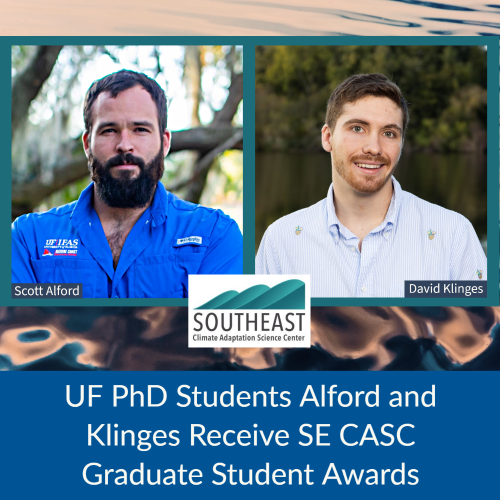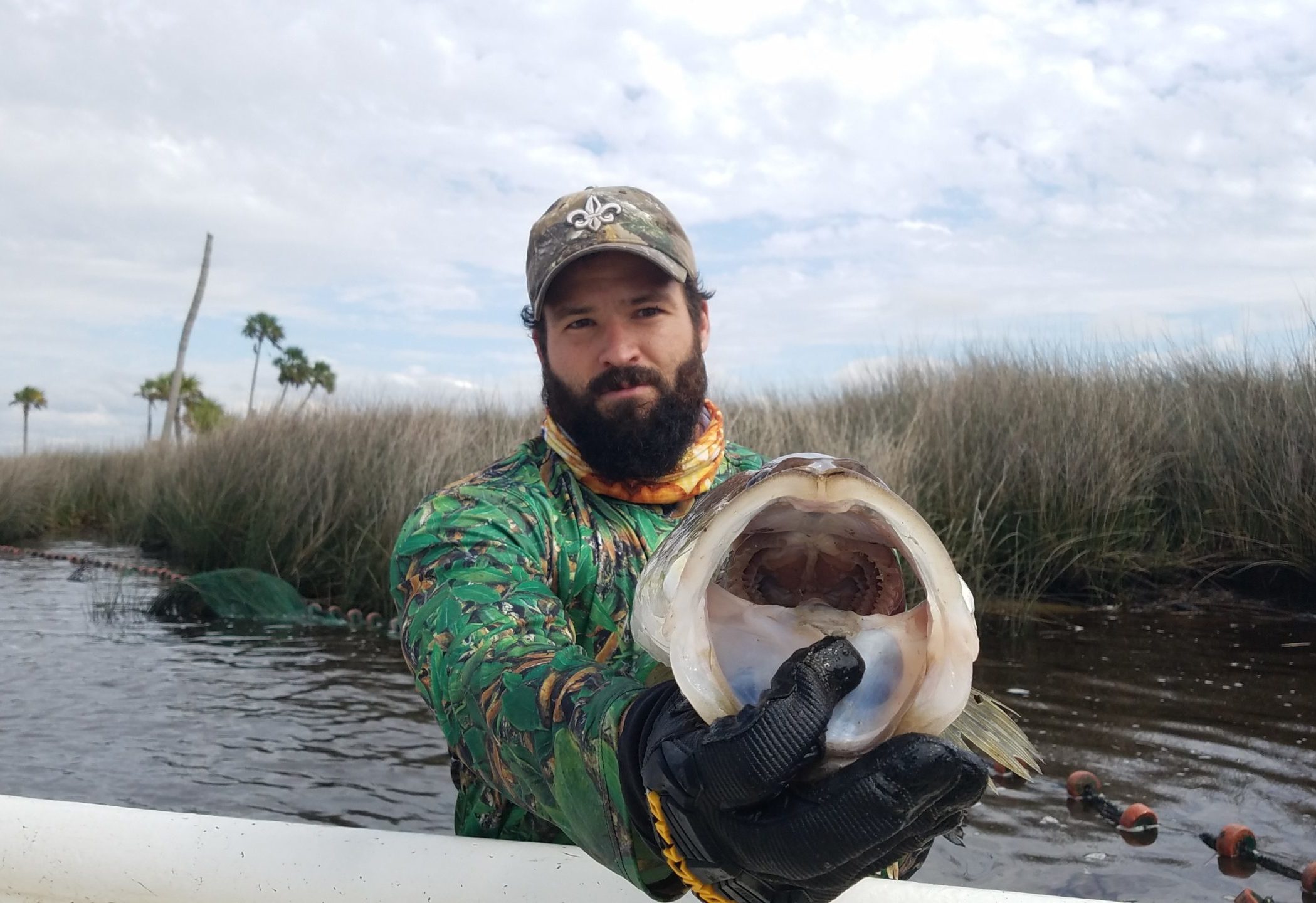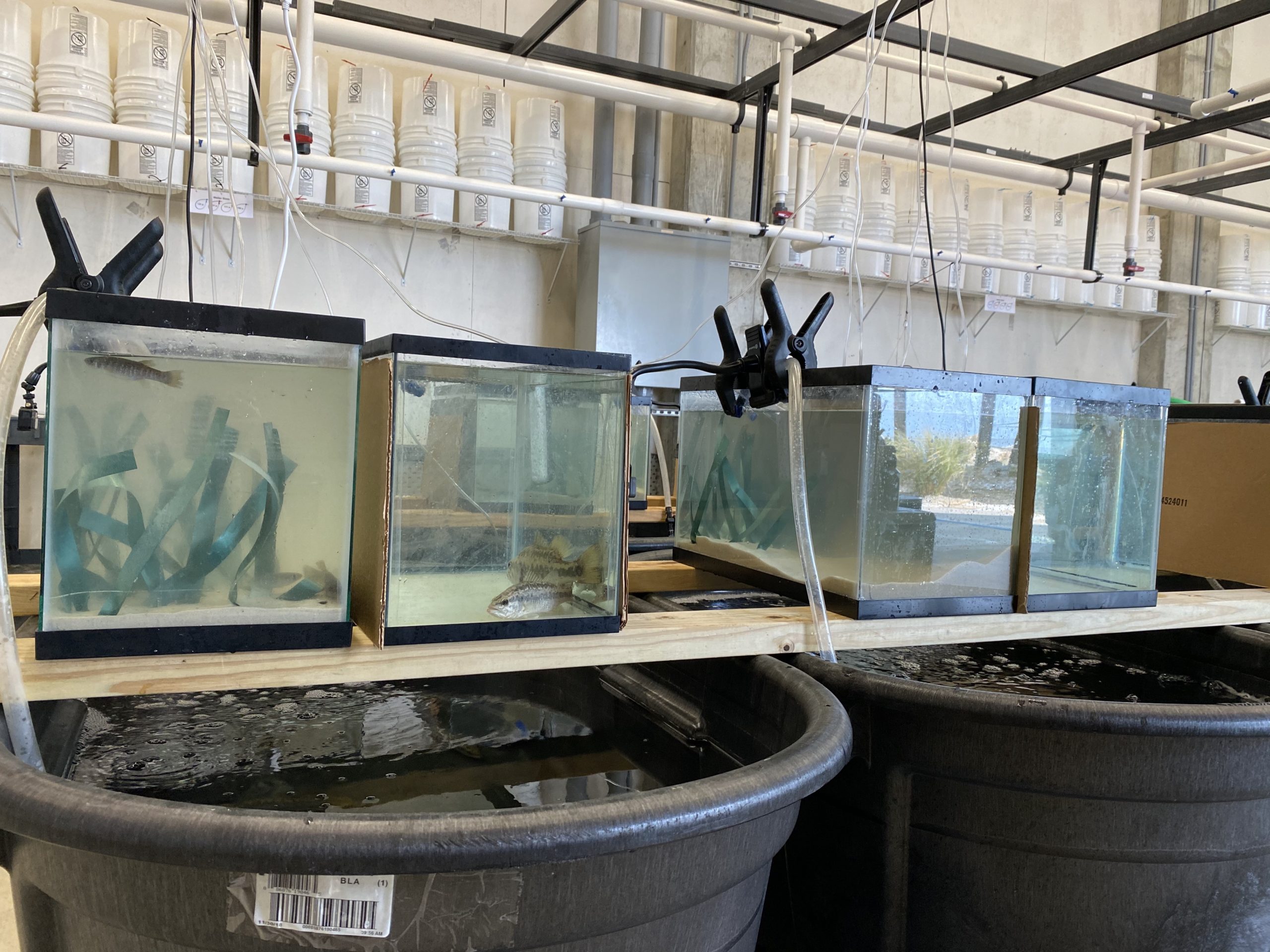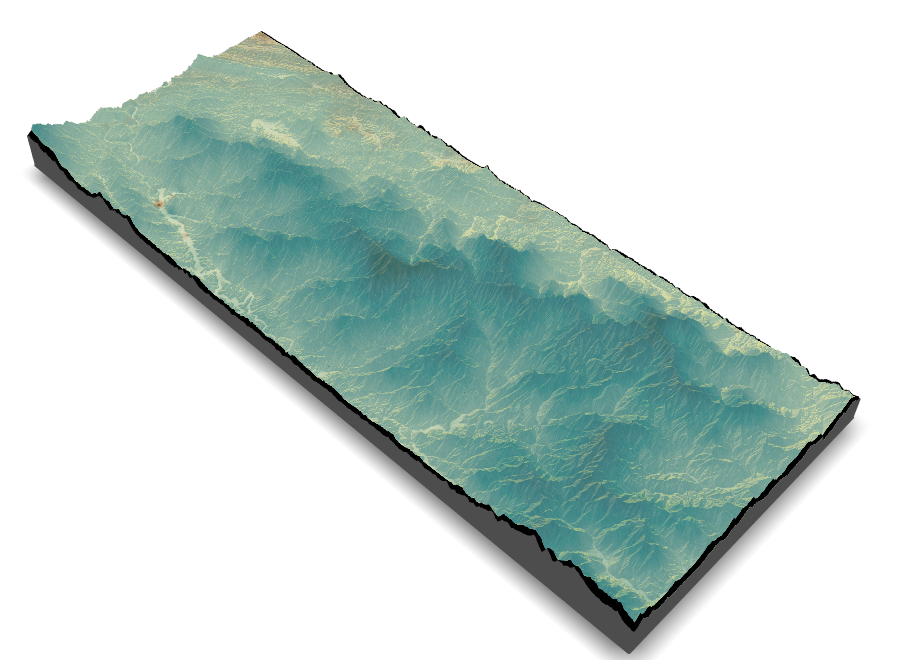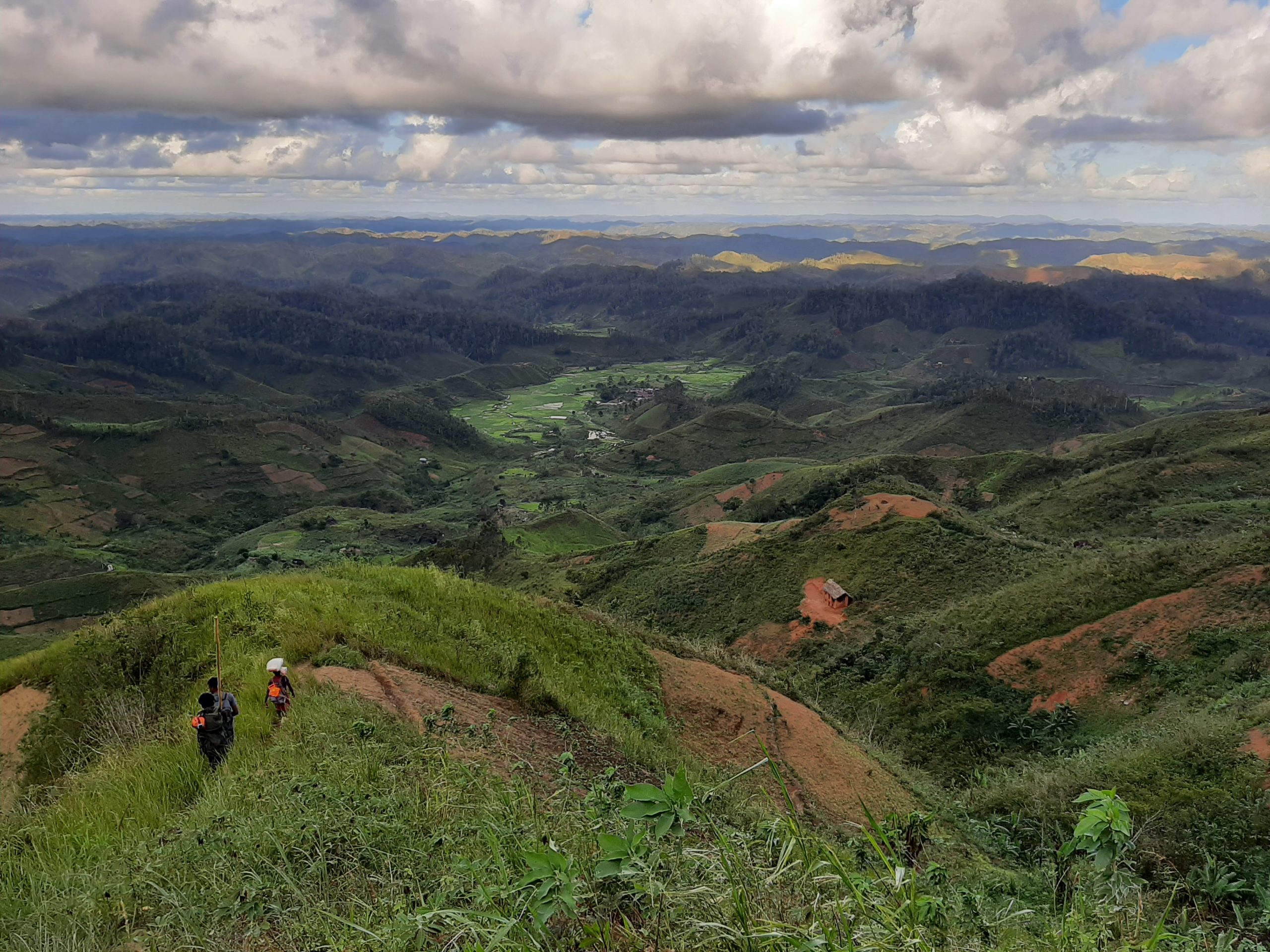Two UF PhD students, Scott Alford and David Klinges, have received funding for travel and research from the Southeast Climate Adaptation Science Center (SE CASC) in collaboration with the UF Water Institute, a consortium university partner of SE CASC. Alford and Klinges were among eight consortium university students to receive awards. Awards were provided to students whose research or travel aligned with the mission and science priorities of the SE CASC to gather scientific information and build tools needed to help fish, wildlife, water, land, and people adapt to the impacts of changing climate and land use.
Scott Alford is a PhD Student in the UF School of Forest, Fisheries, & Geomatics Sciences (Advisor Dr. Charles Martin) who researches the effects of salinity on estuarine food web structure in the Gulf of Mexico at the UF/IFAS Nature Coast Biological Station. He uses modeling and experimental approaches to determine how changes in salinity due to climate change and land use change shape species distributions and subsequent interactions. The SE CASC Graduate Student Award funded his travel to present his dissertation research at the 50th Annual Benthic Ecology Meeting in New Hampshire.
Klinges is a PhD Student in the UF Department of Wildlife Ecology & Conservation (Advisor Dr. Brett Scheffers) who explores how amphibian community composition and climate varies at micro, landscape, and global scales. As part of his doctoral dissertation, he developed “EcoClim”, a model that generates microclimate predictions at high spatiotemporal resolution. He will use SE CASC Graduate Student Award funding for computing resources (UF HiPerGator) to generate microclimate predictions and assess how they influence spatial patterns in species movements and range-expansion.
April 4, 2022


